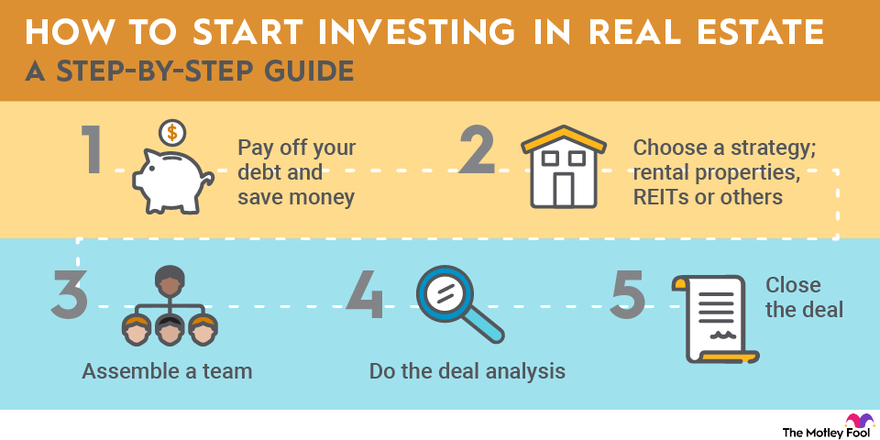There are many real estate investment options to consider. Depending on your goals and risk tolerance, you can choose between buying and holding commercial or residential properties or rehabbing and flipping homes.
You can also invest in offices, storage units, industrial buildings, and warehouses that generate rental income. However, before you invest, make sure you assess your options carefully to determine which type of property is right for you.
1. Know Your Goals
Having clear goals is one of the most important parts of investing. They will determine what types of properties you invest in and how you operate them.
Whether you’re looking to flip houses, buy and hold rental properties or participate in apartment building syndication, your real estate investment goals will help you learn what type of property is right for you.
While many investors are interested in the lucrative returns of real estate, it’s important to understand that this is a long-term investment. Unlike stocks, real estate isn’t correlated to market fluctuations and can offer steady cash flow.
Additionally, real estate offers a variety of other benefits that aren’t financial. These include being your own boss and making a difference in communities. Often, these benefits can outweigh the cost of owning investment properties.
2. Understand the Market
Keeping up with current market trends, mortgage rates, consumer spending habits, and real estate laws is important. This way, you can anticipate changing market conditions and identify upcoming investment opportunities.
Whether you want to invest in residential, commercial, or industrial property, the best type of real estate investment depends on your personal preferences and financial stability. Investors looking for passive income can buy and hold properties with rental tenants or property management companies, while those wanting to be more active may find flipping houses or building new construction more fulfilling.
Once you’ve narrowed down your real estate options, create a proforma statement that compares each property’s potential financial performance. Be sure to include property gross income, vacancy and bad debt expenses, recurring operating expenses, and property management fees.
3. Look for Deals
Real estate can be a great way to invest, providing high cash flow and leverage. It is also relatively stable over time, allowing investors to build equity in addition to loan repayments.
One of the best ways to find a real estate deal is by searching online. There are many different websites that can help you locate properties, including home-sharing apps, Craigslist, and Facebook. You can also use marketing techniques like bandit signs and radio ads to reach local audiences.
Another option is to work with crowdfunding platforms that offer real estate opportunities to investors. These platforms are typically limited to accredited investors, but may offer an alternative for those without the capital to invest on their own. They can also offer lower-risk investments with the potential to yield higher returns than traditional real estate assets.
4. Invest with a Plan
Real estate can be a great way to diversify an investment portfolio. But it is important to carefully consider your goals, local market demand, risk tolerance, and financing method when selecting the best type of property for you.
Investing with a plan is essential to your success as a new investor. Start saving for your down payment early, pay off your credit cards and student loans, and build a solid emergency fund.
As with all investments, there is a high degree of risk associated with investing in real estate. It’s also illiquid, meaning you may not be able to access your funds until the project is completed. Be sure to thoroughly vet any opportunity through crowdfunding platforms, and brush up on your negotiation skills.
5. Make the Right Decision
As with any investment, it’s important to carefully consider your options and do your homework. The type of real estate investment that’s right for you will depend on your goals, market area, risk tolerance and financing method.
Residential real estate investments, including single-family homes and multifamily buildings, provide steady income streams with the possibility of significant property appreciation. This type of investment may require more hands-on management. For investors looking to diversify their portfolios with passive investments, options like REITs or crowdfunding platforms can be a good option. However, it’s important to remember that REITs can be more volatile than direct investments in physical properties. Additionally, crowdfunding investments typically only allow accredited investors (those with a net worth of $1 million or more)









